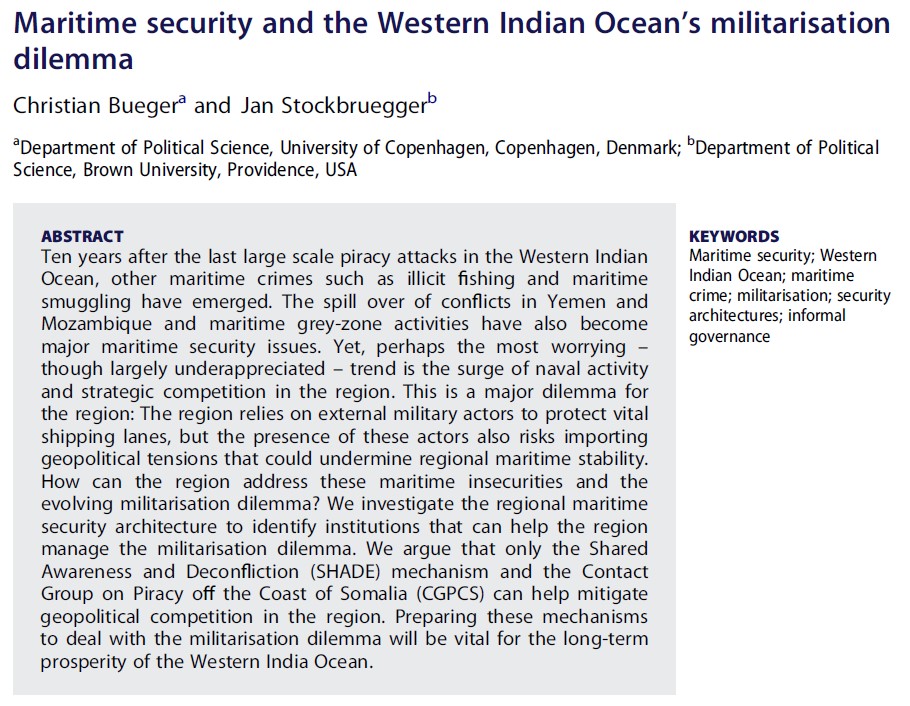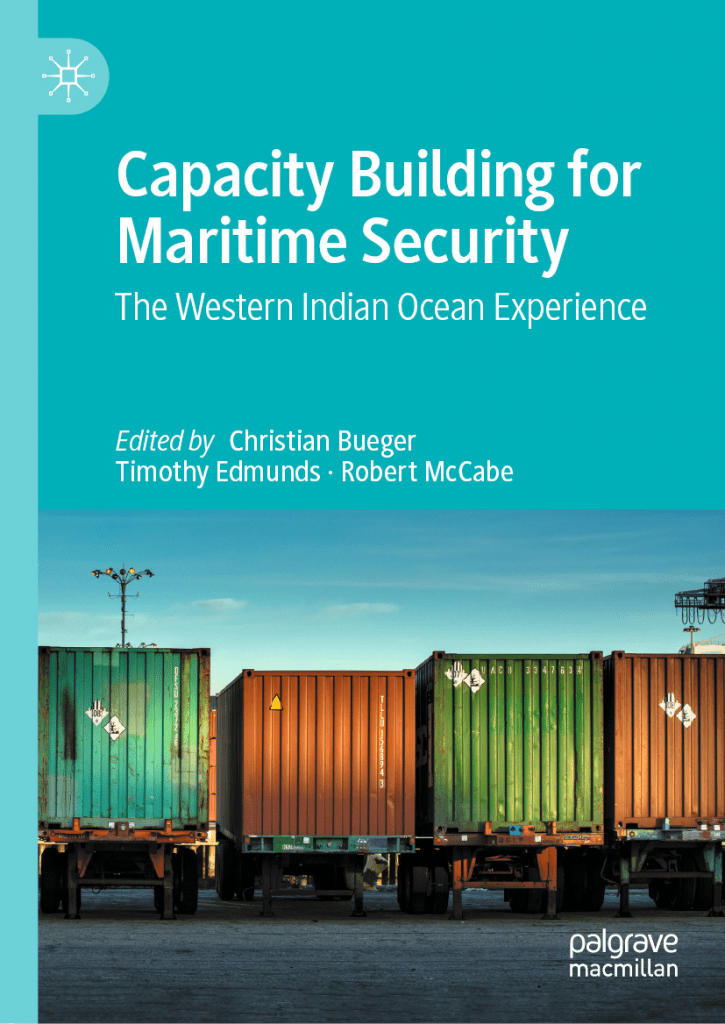Together with Jan Stockbruegger I have conducted a review of the current security situation in the Western Indian Ocean. We show which insecurities are on the rise and argue that the rise of geopolitical concerns increasingly produces a militarization dilemma: foreign naval forces are needed to address insecurity on the one hand, but they might become a source of insecurity in their own right due to growing tensions on the other. We discuss if and how the current security architecture can cope with the problems, pointing in particular to SHADE and the Contact Group. The study is now available with African Security Review as online first.


